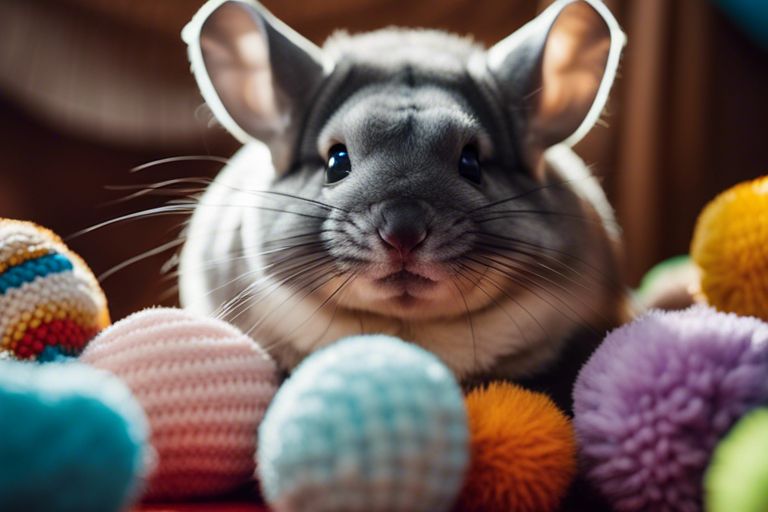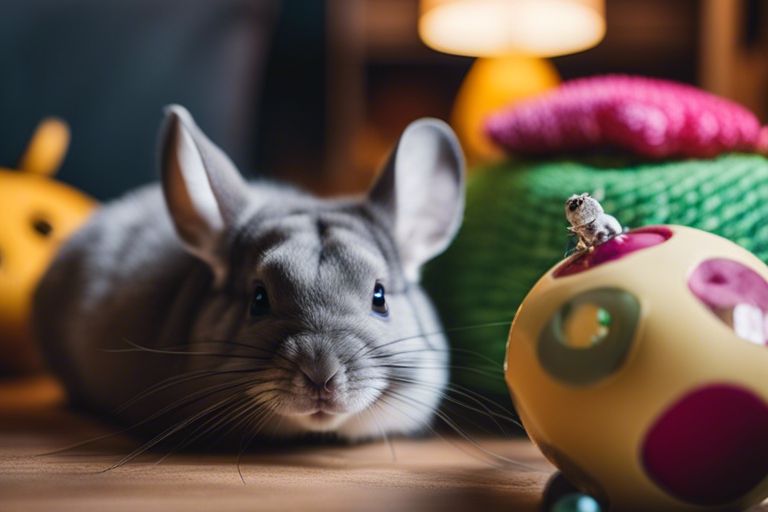On the subject of chinchilla behavior, there has been much speculation and confusion regarding the question, “Do chinchillas play dead?” It is a common misconception that chinchillas possess the ability to exhibit this behavior, however, chinchillas do not play dead in the traditional sense. While it is true that some animals, such as opossums, have been known to display this type of behavior as a defense mechanism, chinchillas do not have this particular skill. It is crucial for chinchilla owners and enthusiasts to have a clear understanding of their pet’s behavior in order to ensure their well-being and safety. By dispelling this common myth, we can better understand and appreciate the unique characteristics and traits of these adorable and intelligent creatures.
Key Takeaways:
- Chinchillas do not play dead: Contrary to popular belief, chinchillas do not have the ability to play dead as a defense mechanism.
- Chinchillas have other defense mechanisms: Instead of playing dead, chinchillas use their speed and agility to escape from predators, as well as their ability to camouflage in their natural habitat.
- Understanding chinchilla behavior is important: It is essential for chinchilla owners to have a good understanding of their pet’s natural behaviors and instincts in order to provide proper care and create a suitable living environment for them.
Chinchilla Play Behavior
Assuming that chinchillas do not play dead, their play behavior can still be quite entertaining to observe. Chinchillas are naturally playful creatures and their play behavior can vary based on their personalities and interactions with their environment and companions.
Typical Activities and Interactions
Activities such as running, jumping, and chasing each other are common among chinchillas. They also enjoy playing with toys such as tunnels, wheels, and chew toys. Chinchillas can also engage in social play, where they groom, wrestle, and chase each other. Observing these interactions can give insight into the social dynamics of chinchilla groups and individuals.
Comparison with Other Rodents’ Play Habits
| Animal | Comparison |
| Chinchillas | Chinchillas can be more active and playful compared to some other rodents, such as guinea pigs and hamsters. |
| Other Rodents | Some rodents may exhibit different play behaviors, which can range from burrowing and digging to climbing and nesting. |
Typical play behavior, while not universally the same among rodents, can offer insight into their natural instincts and needs for mental and physical stimulation. Understanding the play habits of chinchillas and other rodents can help in providing suitable enrichment and stimuli for their well-being.
The Play Dead Phenomenon
Obviously, the concept of animals playing dead has fascinated and perplexed humans for centuries. The ability of certain species to feign death as a defense mechanism has been the subject of study and speculation among researchers and animal enthusiasts alike.
Defining Play Dead Behavior
Phenomenon of animals playing dead refers to the act of an animal deliberately inducing a state of apparent death in response to a perceived threat. This behavior can take various forms, from complete stillness to dramatic convulsions, and is generally triggered by the presence of a predator or other danger.
Reasons Why Animals Play Dead
Dead play behavior serves as a survival tactic for many species. It can be a last resort for prey animals to avoid being consumed by predators, allowing them to escape imminent danger and live to see another day. This strategy can also serve as a distraction, diverting the attention of a predator and creating an opportunity for the prey to flee.
For instance, chinchillas have been observed exhibiting play dead behavior in response to a perceived threat, such as a predator or a sudden, loud noise. This behavior is a crucial component of their survival instincts, allowing them to potentially evade danger and thrive in their natural habitat.

Observing Chinchillas
For chinchilla owners and enthusiasts, observing the behavior of these small rodents can be a fascinating and rewarding experience. Whether it’s their active playfulness or their more subtle habits, understanding chinchilla behavior can provide valuable insights into their well-being and overall happiness.
Case Studies and Anecdotal Evidence
With a quick search online, you can find numerous case studies and anecdotal evidence of chinchillas exhibiting a behavior that appears to mimic playing dead. While the reliability of such accounts can vary, they can still offer valuable insights into the behavior of these animals. Some notable cases include:
- Case Study 1: A chinchilla owner reported their chinchilla lying motionless for several minutes before suddenly springing back to life when touched.
- Case Study 2: Anecdotal evidence suggests that chinchillas may play dead as a response to perceived threats from predators or unfamiliar stimuli.
Analysis of Play Dead Behavior in Chinchillas
The behavior of playing dead in chinchillas has been a topic of interest among researchers and enthusiasts alike. The ability for chinchillas to mimic death-like behavior may have evolved as a defense mechanism in the wild, helping them to evade potential threats from predators. Understanding the potential triggers and motivations behind this behavior can provide important insights into chinchilla psychology and survival strategies.
To gain a deeper understanding of play dead behavior in chinchillas, it is crucial to consider the environmental and situational factors that may influence their responses. By closely observing and documenting their behaviors, researchers and chinchilla owners can contribute to a growing body of knowledge about this fascinating aspect of chinchilla behavior.
Contextual Considerations
Your understanding of chinchilla behavior must consider various contextual factors that may influence their actions. It’s important to take into account both environmental and health factors, as well as their stress responses and survival mechanisms.
Environmental and Health Factors
Health and environmental factors can greatly impact a chinchilla’s behavior. Factors such as temperature, humidity, diet, and overall health condition can affect how a chinchilla behaves.
- Dehydration, illness, and physical discomfort can lead a chinchilla to exhibit unusual behavior, such as playing dead.
- Poor living conditions or overcrowding can also cause stress and anxiety in chinchillas, leading them to engage in survival tactics, including playing dead.
Though chinchillas are hardy animals, it’s essential to prioritize their health and well-being to prevent unwanted behavior.
Stress Responses and Survival Mechanisms
The natural stress responses and survival mechanisms of chinchillas can significantly influence their actions. Chinchillas have evolved to possess a range of survival tactics, one of which is the ability to play dead. The instinctual nature of this behavior may be triggered in response to perceived threats or high-stress situations.
Mechanisms such as freezing or playing dead can help chinchillas escape predators in the wild. However, in a captive environment, chinchillas may exhibit these behaviors in response to perceived threats as well.
Do Chinchillas Play Dead?
Following this discussion, it is clear that chinchillas do not play dead. While some animals may exhibit this behavior as a defense mechanism, chinchillas rely on their agility and speed to escape from predators. Their natural instincts drive them to flee rather than freeze or feign death. Therefore, it is important for chinchilla owners to be mindful of their pet’s behavior and provide a safe and secure environment to prevent any potential threats.
